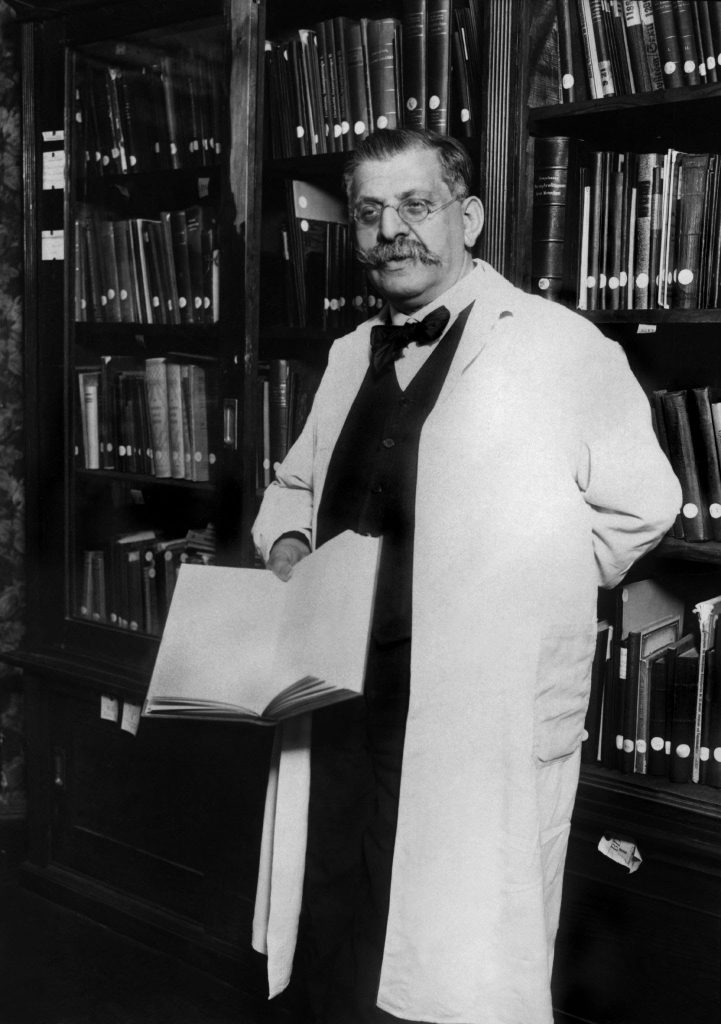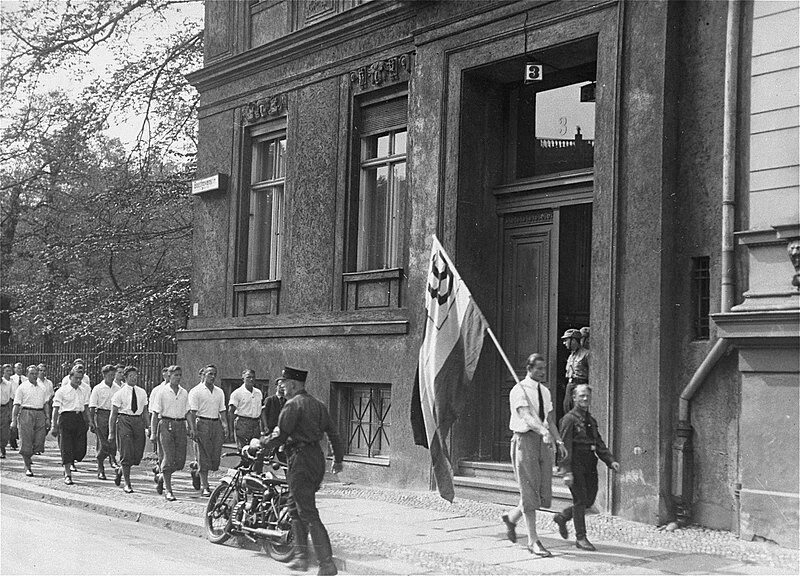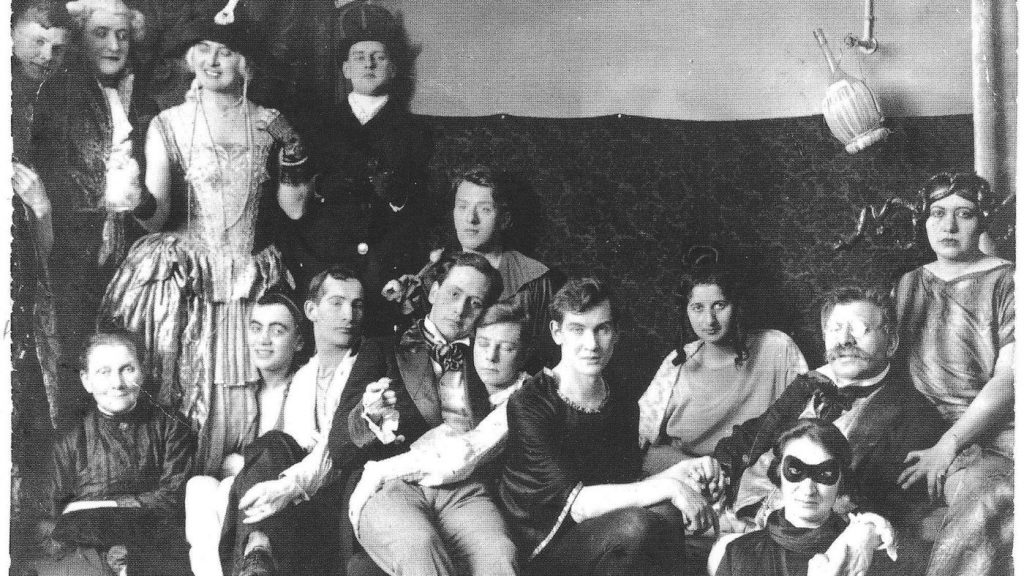Originally published in Exberliner.
Today only a small plaque along the Spree commemorates the villa where Magnus Hirschfeld carried out the first ever gender-affirming surgeries, and where secret anti-colonial communist meetings were held in.
In the 1920s, a villa in Tiergarten sat on the banks of the Spree, near where HKW now stands. It was home to Magnus Hirschfeld, the gay Jewish doctor who facilitated the world’s first gender-affirming surgeries. In the same building, communist leaders held secret meetings with anti-colonial guerrilla fighters. This was The Institute for Sexual Science, like something out of a Fox News fever dream.
On February 27, 1912, a 19-year-old was arrested in Weißensee for walking around in women’s clothing. The suspect was charged with Grober Unfug (public nuisance).
At the police station, the suspect had to be released. It turned out that Gerda von Zobeltitz, who had been assigned male at birth, was in possession of a so-called Transvestitenschein (transvestite pass), a permit from Berlin’s police chief allowing her to wear dresses. She had gotten a medical certificate from Dr Magnus Hirschfeld explaining that it was in her nature to wear dresses. In the language of the time, she was a “transvestite personality”, and even the Wilhelmine police had to admit that arrests wouldn’t change that.
The incident prompted a half-dozen Berlin papers to report about the “boy in women’s clothing,” who made news again when she married a woman at the civil registry office.
Way back in the 1890s, Hirschfeld had made a career out of treating people who didn’t fit into the rigid gender and sexual norms of imperial Germany. Hirschfeld’s Scientific Humanitarian Committee (WhK), the world’s first gay-rights group, launched a petition to abolish Germany’s law against male homosexuality, the infamous Paragraph 175.
The Institute
In 1919, with the new Weimar Republic loosening the screws on queer people ever so slightly, Hirschfeld bought a villa in Tiergarten. The large house – or a small palace, really – on the corner of In den Zelten and Beethovenstraße had been built for the Hungarian violinist Joseph Joachim. Now, it became home to the Institute for Sexual Science. There was space for consultation rooms, an enormous archive (including plenty of pornography) and an apartment for Hirschfeld and his partner. Anyone could get professional help for their sexual problems – those too poor to afford the fees could help out in the office instead. Two years later, Hirschfeld bought the building next door to add to the annex.
Hirschfeld treated patients from all walks of life and even went to colonial exhibitions to interview people from distant cultures about their sexuality. Based on his research, Hirschfeld saw that gender and sexuality manifest themselves on different levels: sex organs, other physical characteristics, sexual desire and other psychological characteristics. On these four scales, each person can be situated somewhere between male and female. Instead of two categories, men and women, Hirschfeld emphasised the importance of seeing each person’s unique gender and sexual identity.
When power was handed over to the Nazis in 1933, Hirschfeld – a gay, Jewish, socialist doctor who questioned social hierarchies – was their prototypical enemy. On May 6, 1933, Nazi stormtroopers trashed the institute; a number of Hirschfeld’s books went up in flames in the state-sponsored pyres four days later. At that time, he was outside of Germany for a speaking tour and never returned – he died in exile in 1935.
The Commies
But the Nazis had another reason to hate the Institute for Sexual Science. The villa was also a nest of secret communist activity – a hangout for Pinks but also for Reds.
Hirschfeld himself was a Social Democrat, but in the words of Babette Gross, he “had a heart for communists”. Gross had moved into Hirschfeld’s building in 1926 together with her partner, Willi Münzenberg. He was the Communist Party’s larger-than-life propaganda chief, known as the “Red Millionaire” for running one of the biggest media empires in Weimar Germany. In reality, Münzenberg never had any money himself. Only at age 37 did he settle down in a furnished room in the Tiergarten villa.

“The many corridors were plastered with the sexual symbols of primitive peoples and other relevant photographic material,” Gross recalled. “And visitors to the institute wandered through our corridors as well.” Officials of the Communist International came to appreciate the building, not just for its exotic collections, but also because it was ideal for conspiratorial meetings. With people going in and out of the institute constantly, it was impossible for police spies to keep track, so anyone could slip through a connecting door for a meeting with Münzenberg.
Gross and Münzenberg had a WG with another leading Communist, the boyish and bookish Politbüro member Heinz Neumann, famous for his slogan “Beat the fascists wherever you meet them!” The Indian Communist M.N. Roy, busy planning armed insurrection against the British Empire, lived in those rooms as well, but Hirschfeld didn’t only rent to Reds. The British author Christopher Isherwood also lived at the Institute, which is likely how he came to immortalise Münzenberg with the only lightly fictionalised character Ludwig Beyer in his novel, Mr. Norris Changes Trains.
Hirschfeld never joined the Communists. He was, at the end of the day, a wealthy doctor with no interest in the nationalization of the healthcare system. But at least one researcher at the institute was a commie: Richard Linsert, besides publishing about male prostitution, took on leading roles in the Communist Party’s paramilitary wing, the Red Front Fighters League, as well its spy service, the Antimilitarist Apparatus. While the Communist Party of Germany (KPD) campaigned for the abolition of Paragraph 175 (which only happened in 1994), there were limits to its progressive views: Linsert never made it onto the Central Committee, due to concerns that a gay man would be subject to blackmail.
The Legacy
Just a few years after the Nazis had destroyed the Institute, bombs demolished the villa as well. It took a while before Hirschfeld reentered the German public consciousness. Today, a brown metal box marks the spot next to the Spree river. Except: the location isn’t quite right. The villa would have been on the other side of Haus der Kulturen der Welt. When the plaque was installed in 1994, the new Federal Chancellery was being planned, and they didn’t want the small monument getting stuck in the middle of a construction site.

The memory is kept alive by the Magnus Hirschfeld Society, which became active in 1983, when West Berlin was commemorating the 50th anniversary of the Nazis seizing power. As the society’s co-founder Ralf Dose recalls, “the official commemoration didn’t include many different victims of fascism: the Communists of course, the Sinti and Roma, especially not the so-called Asocials, but also the gays and lesbians.” So activists from Berlin’s gay liberation movement organised their own lecture series. Over the last 40 years, the society has expanded its focus beyond homosexuality, since Hirschfeld’s institute also offered counselling for straight people, including contraception and abortion. Dose has since written a biography: Magnus Hirschfeld – The Origins of the Gay Liberation Movement. Currently, they are looking to build a queer archive in the old Kindl Brewery, next to SchwuZ.
Remembering this long history is important when confronting homo- and transphobia today. When people spread conspiracy theories about trans people being part of a nefarious plot by “cultural Marxists” to destroy civilization, it’s kind of ridiculous. But there might be a kernel of truth: both queers and communists seek to overturn patriarchal capitalist hierarchies and create a society where everyone is free and equal. The villa in Tiergarten is a reminder of how intertwined these two liberation movements were and still are. Communists of the 1920s were not just the avant garde in politics, but also painting, music and sexuality. It was the Stalinist counterrevolution that cut off all that emancipatory potential.











